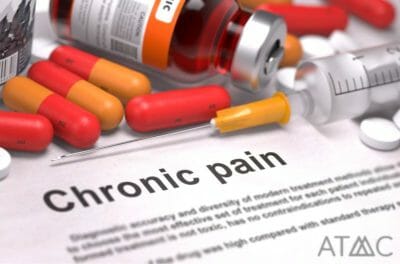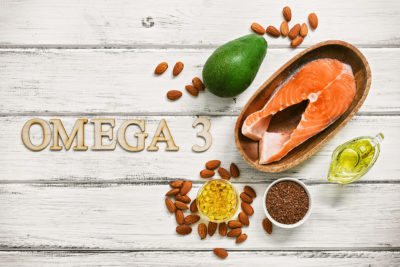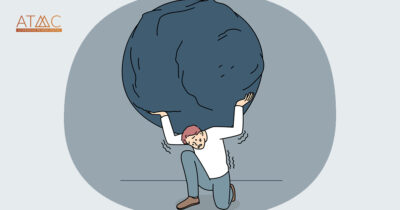Medically Reviewed by Dr Samuel Lee MD
Table of Contents:
Many people suffering from severe and chronic pain turn to medication to help them get through the day. This reliance on medicine is compounded by the fact that many healthcare providers are too eager to prescribe medications, especially opioids, to treat acute pain. However, there are many ethical questions about this enthusiasm leading to overprescribing opioids for pain management, and the fact that they are so addictive makes them a dangerous choice for acute pain sufferers. Pain management and addiction do not have to ruin your life.1,2

The truth is pain medications will not cure your pain. Krebbs et al’s 12-month-long comparison study of opioid vs non-opioid treatment for pain showed conclusively that opioids do not reduce pain when used long-term. In some cases, opioids can even worsen pain over long-term use.17 The desperation for help, when a person is in pain, may foster buying into false “cures” that actually add to the problem. True pain management comes from a holistic, investigative approach that incorporates environmental medicine, orthomolecular medicine, psychology, naturopathy, physiotherapy, laboratory testing, and more.
What Is Holistic Pain Management?
Pain management can be a misleading term, in that it may imply hopelessness. Perhaps a better stated objective for someone living with acute pain would be “pain reduction ” or even “pain elimination”. Instead of managing pain, effective treatments may significantly lessen the pain so that you can get back to the quality of life you’re used to living without heavy drug dependence. Alternative to Meds programs focus on science-backed strategies for the reduction of pain that will provide significant and lasting relief, and that do not rely heavily on medication.
There seem to be new clinics opening every day that claim to be experts in pain management. However, when people go there, too often the only treatment offered is in the form of one or multiple prescriptions.
Pain may not come from one source alone. Many elements of your life can be adding to the pain you are already suffering from. Chronic conditions can arise from injuries, as well as a lack of exercise or a lifetime of improper nutrition. The buildup of toxins in your body, nutrient deficiencies, living in a toxic environment, and many other factors can contribute to chronic pain conditions. The CDC recognizes that many clinics do not do the work needed to uncover someone’s underlying reasons and the contributing factors for pain, but rely instead, incorrectly, on pain medication as the first-line approach.3
Holistic Pain Management and Addiction
When looking at the relationship between pain management and addiction, the numbers are shocking. Up to 29% of people who are prescribed opioids for pain management misuse them, and approximately 12% develop an addiction disorder. Between 4% to 6% of all people who misused prescribed opioids went on to use heroin. Perhaps most tragic of all, in 2019, nearly 50,000 people died in the United States of an opioid overdose. It’s simply heartbreaking to think about how many lives are affected by the consequences of addictive drugs. The culture of pain management must change in this country for the safety of all its people.1-3
Many people are not adequately informed that real relief from pain can come from non-harmful methods including exercise, diet change, physiotherapy, and others. There are alternative treatments for pain management that work naturally with the body that can be explored to bring effective and lasting relief.
The Holistic Approach to Pain Management
One of the most common questions asked by people living with acute pain is “What are alternatives to medication for effective pain management?” Often, they feel that there is no answer to this question that doesn’t involve some form of drugs; however, nothing is further from the truth. Holistic approaches are a much safer means of pain management and do not result in addiction.

Personalized Programming at Alternative to Meds Center
At Alternative to Meds Center, we begin the process of pain management treatment with a biochemical examination through laboratory testing and other assessments. We understand that everyone is a unique individual and, as such, they will have unique needs to be addressed throughout their pain management treatment. Things that are taken into account include the medical history of the patient including past or current illness and injury, medication history, current physical and mental conditions, an assessment of diet, genetic factors, an inventory of types of treatments in the past that failed, and any other considerations that will aid in programming holistic treatment of their pain. Safe medication withdrawal must be done gradually and in tandem with pain reduction therapies. A new awareness is dawning in the holistic medical community that gives real hope to those who have been waiting for authentic, effective, drug-free treatments for pain.6
Alternative Treatments for Holistic Pain Management
You’re not alone if you’ve ever asked the question “How can I manage my pain without medication?”
Below are some of the scientifically sound approaches Alternative to Meds Center recommends, followed by an expanded description:
- Acupuncture
- Exercise
- Massage therapy
- Nutritional upgrades
- CBT and other forms of psychological support
1. Acupuncture
An acupuncturist will use thin needles, gently inserted into specific points of the body, that will relieve pain. Acupuncture has been performed for thousands of years and is commonly used in the Far East. Although it had been largely dismissed or laughed at over the years by Western doctors, the scientific evidence tells a different story. In fact, when international experts from all over the world combined studies that involved over 18,000 participants, they found that there was significant pain reduction as a result of acupuncture.7
Acupuncture for pain reduction is becoming increasingly used as it is effective and doesn’t incur the adverse effects associated with drug-based treatments.18
Although acupuncture has been in use for 3,000 years or more, scientific studies are underway to explore the reasons why acupuncture is effective. Fascinating research is ongoing on how acupuncture can regulate the body’s neurotransmitters, hormone levels, and immune system.19
2. Exercise

One of the most beneficial advantages of exercise is it naturally releases endorphins. These natural endorphins are much more powerful pain relievers than the pain medications you will find in a pharmacy. Exercise needs to be carefully tailored to the individual, never reaching a level of intensity that will exacerbate their pain. Exercise regimens are best tailored to each individual’s needs and abilities. For some, aerobic exercises (at a tolerable level) can be highly beneficial, especially for neurotransmitter regulation.20 Others may find relief utilizing the gentle moves of tai chi or Qi gong can provide ideal health benefits. 21
3. Massage Therapy
Massages done by experts that work deep into the muscles can also help with pain management. Massage may help accelerate the process of draining bio-accumulated waste products stored in your body which can help your mental state find its balance again. Massage is also deeply relaxing and can help relieve external stressors that may be adding to the pain you are already feeling. Many people might not realize all that massage therapy entails, and an expanded idea of what it is can include ultrasounds and even whirlpools.9
4. Nutritional Therapy

Vitamin deficiencies can contribute to painful conditions. For instance, a vitamin D deficiency is recognized as a contributing factor to the severity of muscular and joint pain, and also in inflammatory bowel conditions.12
Acute pain can be worsened by the noxious elements in processed foods. A corrected, clean diet is indicated by clinical research as an effective way to prevent or even reverse the development of chronic pain conditions brought on by poor diet.13
Behavioral and Mental Health Therapies
It might surprise people to know that your mental health can affect how your body feels and deals with pain. Talk therapy such as CBT can be used to help identify the source of your pain and uncover feelings that may be holding your pain relief back or even blocking the body’s natural ability to heal.
Often, mental health therapies will help those who are tapering off the medication they use and confront the reasons that they became dependent on the medications in the first place. With the case of opioids, many people begin taking them for pain, but they begin to use them to hide from other issues and to self-medicate to deal with other traumas. There are a wide set of genres including cognitive behavioral therapy, acceptance & commitment therapy, trauma counseling, and many more, that can help get to the source of issues that might be causing or contributing to physical pain.14,15
People are social beings, and when someone has no one to talk to, mental health begins to suffer. Talking to a specialist not only gets your thoughts out and changes your ways of thinking, but together, you can start healing relationships that you may have long neglected.
Science suggests that talk therapy and other non-pharmacological therapies can help ease back pain, arthritis, headaches, fibromyalgia, depression, and anxiety, and can help an individual work through negative thoughts and low self-esteem. 16
Contact Alternative to Meds Center
If your pain management treatments are not offering a wider variety of approaches to manage your pain, then it is time to seek a whole other kind of help. If you are ready to try an approach to pain reduction that will take all the factors in your life that may be causing you pain and begin a multifaceted approach to treatment, then reach out to Alternative to Meds today.
We can help lessen your pain, help you heal from any addictions that may have resulted from trying to cure the pain, aid you physically and mentally to withdraw from harmful medication and help you reset your mind and body. If you’ve been asking yourself “What are some alternatives to opioids for pain?” and are ready to explore these natural, healthy alternatives, contact Alternative to Meds today and see what possibilities are available to you today.










